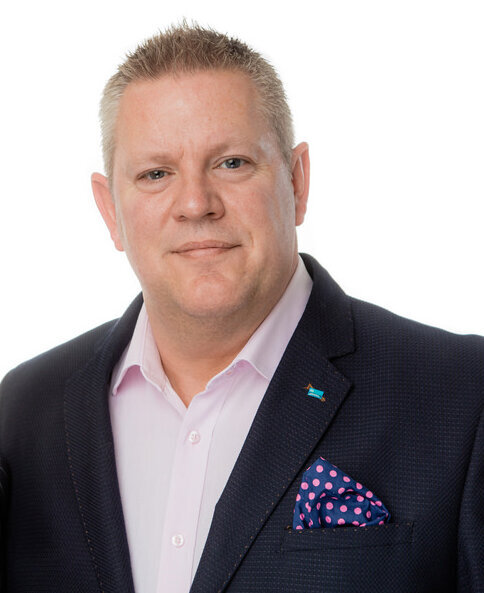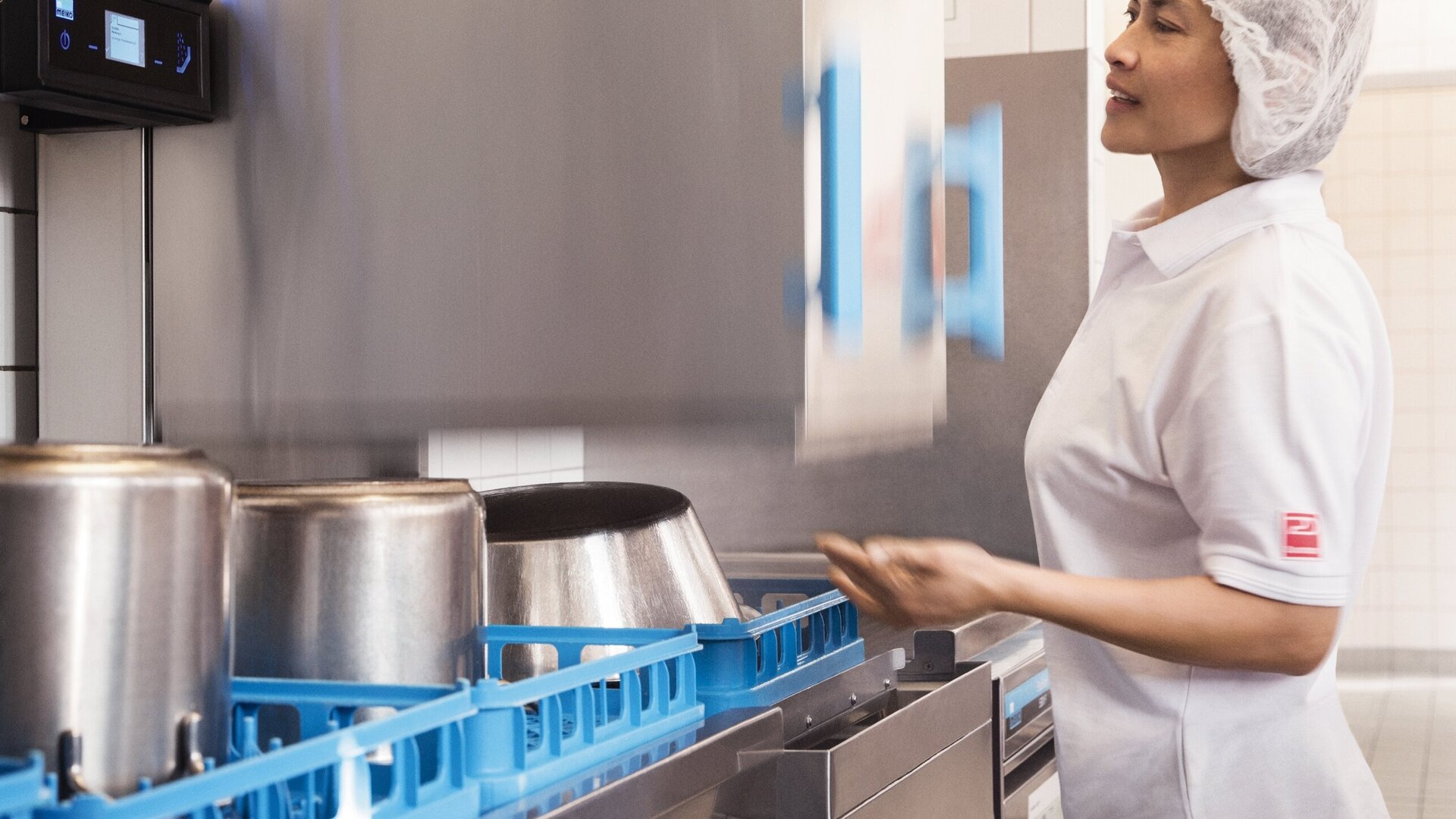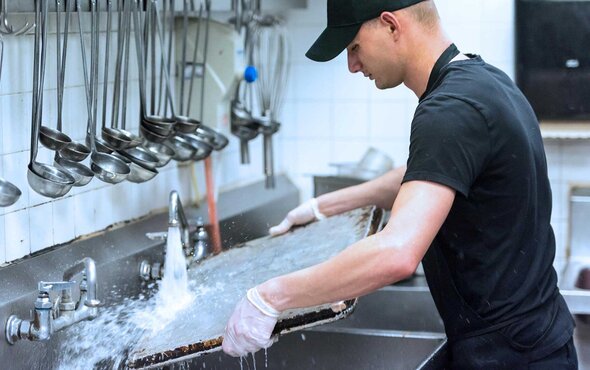A discontented murmur slowly spreads around the dining area. Guests have been waiting far too long for their meals and drinks even though the kitchen and waiting staff are working at full pelt. There could be any number of reasons for this situation: the dishwashing machine operator has called in sick at short notice. The aging dishwashing machine can no longer cope with the volume of crockery, glassware and cutlery. Or perhaps the working conditions and processes in the kitchen and dishwashing area are just not as well coordinated as they should be. Let's look at these one at a time:
EMPLOYEES AND EMPLOYERS BOTH BENEFIT FROM AN ERGONOMIC WORKPLACE
Staff absences due to illness cost restaurateurs a lot of money. The reasons for absenteeism are many and varied. One of the most common causes of ill health among workers is musculoskeletal disorders. This is especially true of staff in the dishwashing area in food service. The indoor climate is less than ideal due to the steam and heat caused by outdated dishwashers and the physical exertion of operating the appliances can cause staff problems, too. The most common example is opening and closing dishwashing machine hoods and lifting racks which causes tension, joint inflammation and damage to spinal discs.
Sick days are a frequent consequence of this.
One potential solution would be a dishwashing machine that makes work easier using innovative technology. A machine like this reduces staff absences due to illness and ultimately leads to noticeable cost savings. German ergonomics expert Prof. Peter Schwarz explains, ‘An ergonomically designed workplace leads to greater job satisfaction and enthusiasm among employees. That in turn leads to fewer errors and lower absenteeism, which translates into greater efficiency.
SUSTAINABILITY AND EFFICIENCY FOR CLEVER BUSINESS MANAGEMENT
All over the world, smart food-service managers are betting on sustainability these days, whether they manage a bistro, company canteen or luxury hotel restaurant. The principles of sustainability protect the environment, of course, but they also protect your bank balance. Energy and water prices are a significant cost in commercial kitchens and they needs to be taken into account when planning and installing the dishwashing area. Professional dishwashers run shorter cycles, saving electricity. They also consume less water and detergent.
It's not just about saving money, though. We cannot forget quality. The quality of the clean is, of course, also vital. By that, we don't just mean clean plates, cups and glasses – although your customer quite rightly expect these – the top consideration is complying with the hygiene regulations for commercial dishwashing.
PROS NEED A RELIABLE SERVICE
Dishwashing machines in commercial kitchens are in operation practically around the clock. So it's no wonder that they break down occasionally, sometimes due to human error and sometimes a technical defect. Especially with older, complicated appliances, operational failure is a risk: the drain strainer can become blocked or the detergent dosing system can respond incorrectly. This quickly turns to chaos in day-to-day operations.
To prevent this from the start, you will need to choose the right kitchen equipment in the planning phase. Professionals are careful to choose a manufacturer who also provides top performance in service. After all, what good is it if the dishwashing machine breaks down on a Saturday evening but customer service can only be contacted on Monday? This is another area where you want the best support with the best reputation, preferably world renowned.
MEIKO provides this combination of both high-quality, reliable machines and reliable service. There is a reason why the British Catering Equipment Suppliers Association (CEDA) has already twice honoured the warewashing technology specialist with the CEDA Award for service and technical support, and once with the Supplier Award in the ‘heavy equipment’ category this year. ‘The driving force behind our success is our commitment to the highest quality, including the quality of our relationships, communication and commitment to our distribution partners,’ believes Paul Anderson, Managing Director of MEIKO UK.



